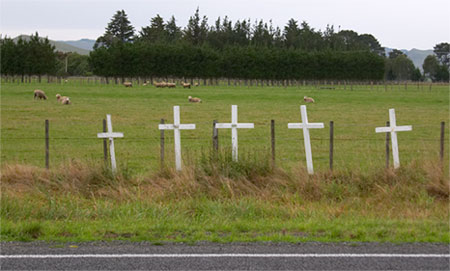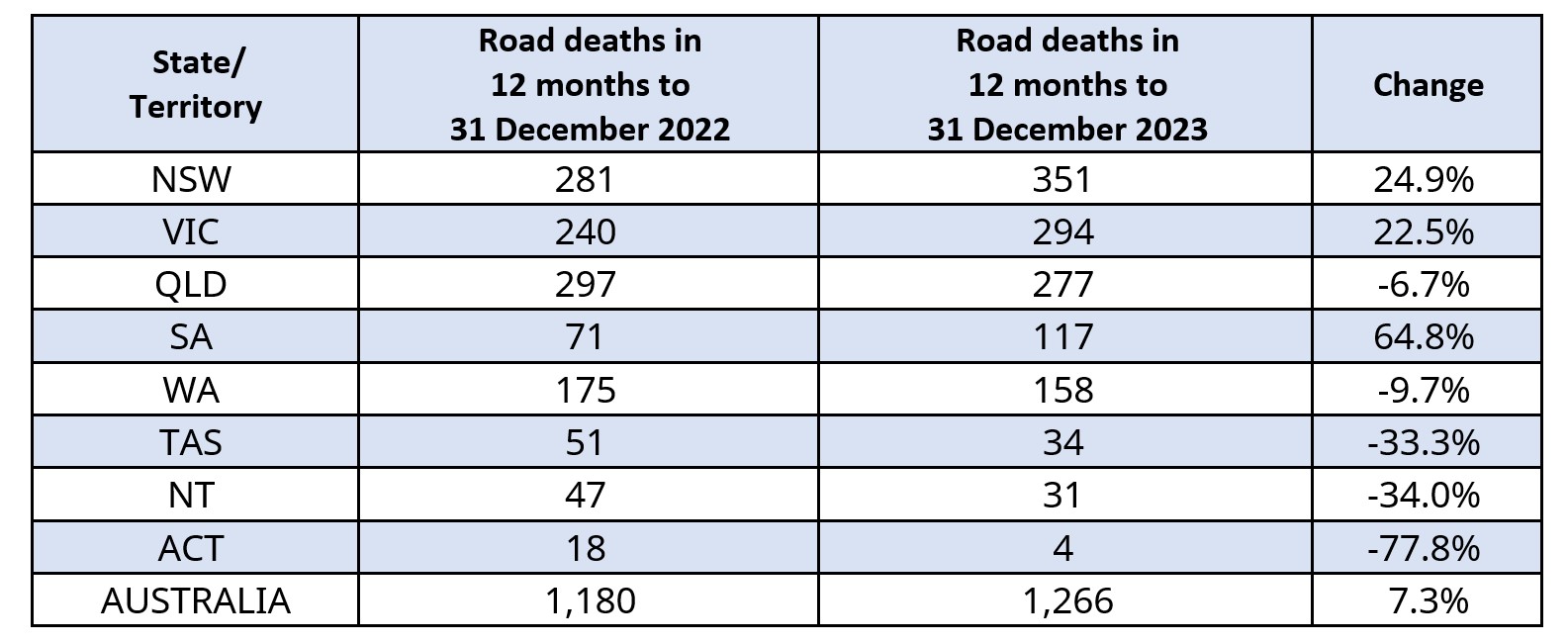
A new report from Australia’s peak motoring body shows Australia’s road network has just recorded its deadliest six months in 13.5 years.
The AAA’s latest Benchmarking the National Road Safety Strategy report reveals 1,266 people died on Australian roads in 2023, representing a 7.3 per cent increase on the previous year.
The second half of 2023 saw 677 road deaths recorded – the deadliest consecutive quarters on Australian roads since the first half of 2010.
The biggest year-on-year increases occurred in Australia’s two most populous states – NSW (24.9%) and Victoria (22.5%) – and in South Australia (64.8%).

The AAA says the data needed to make sense of Australia’s worsening road toll is being collected by state governments, but it’s not being released. This data relates to the quality of Australian roads, the causes of crashes, and the effectiveness of the various measures to prevent crashes.
AAA Managing Director Michael Bradley said: “Without good data, Australia has no credible plan to understand its current road trauma problems or prevent their continuation.
“While so much data relating to roads quality and crash causation remains secret, Australia can neither identify the cause of its rising road toll, nor develop the most effective measures to reduce it.
“AAA research shows Australians are deeply cynical of how politicians prioritise road project funding and improved data transparency is a commonsense approach that enjoys overwhelming community support.”
The Commonwealth is currently negotiating a new National Partnership Agreement on Land Transport Infrastructure Projects, which will take effect from July 2024 and dictate how $50 billion in federal road funding is allocated over the next five years.
The AAA’s Data Saves Lives campaign is calling on the Commonwealth to use the new agreement to compel states and territories – as a condition of receiving federal road grants – to report existing road safety data.
Shortly before the 2022 election, the federal Labor Party committed to “cooperate with the states and territories to improve the timeliness and quality of road trauma data and look for opportunities to extract better quality road safety data from states and territories in return for funding of road projects”.
The AAA is calling on the Albanese Government to deliver on that promise because voluntary data-sharing arrangements are failing, and the only way to achieve the required transparency is to use the agreement to link data sharing with the receipt of road funding.
Data Saves Lives is supported by the nation’s motoring clubs, and 18 national organisations representing motorists, motorcyclists, truckers, pedestrians, doctors, insurers, road engineers and safety advocates.
The AAA’s proposal has been endorsed by all Liberal, National, Greens and Teals MPs in the House of Representatives. But with only one exception, Labor MPs have declined to support road safety data transparency.
The National Road Safety Strategy 2021-30 was agreed by all Australian governments in 2021 and aims to halve Australian road deaths through the decade to 2030.
The AAA’s Benchmarking Report is available at www.aaa.asn.au/knowledge-centre




